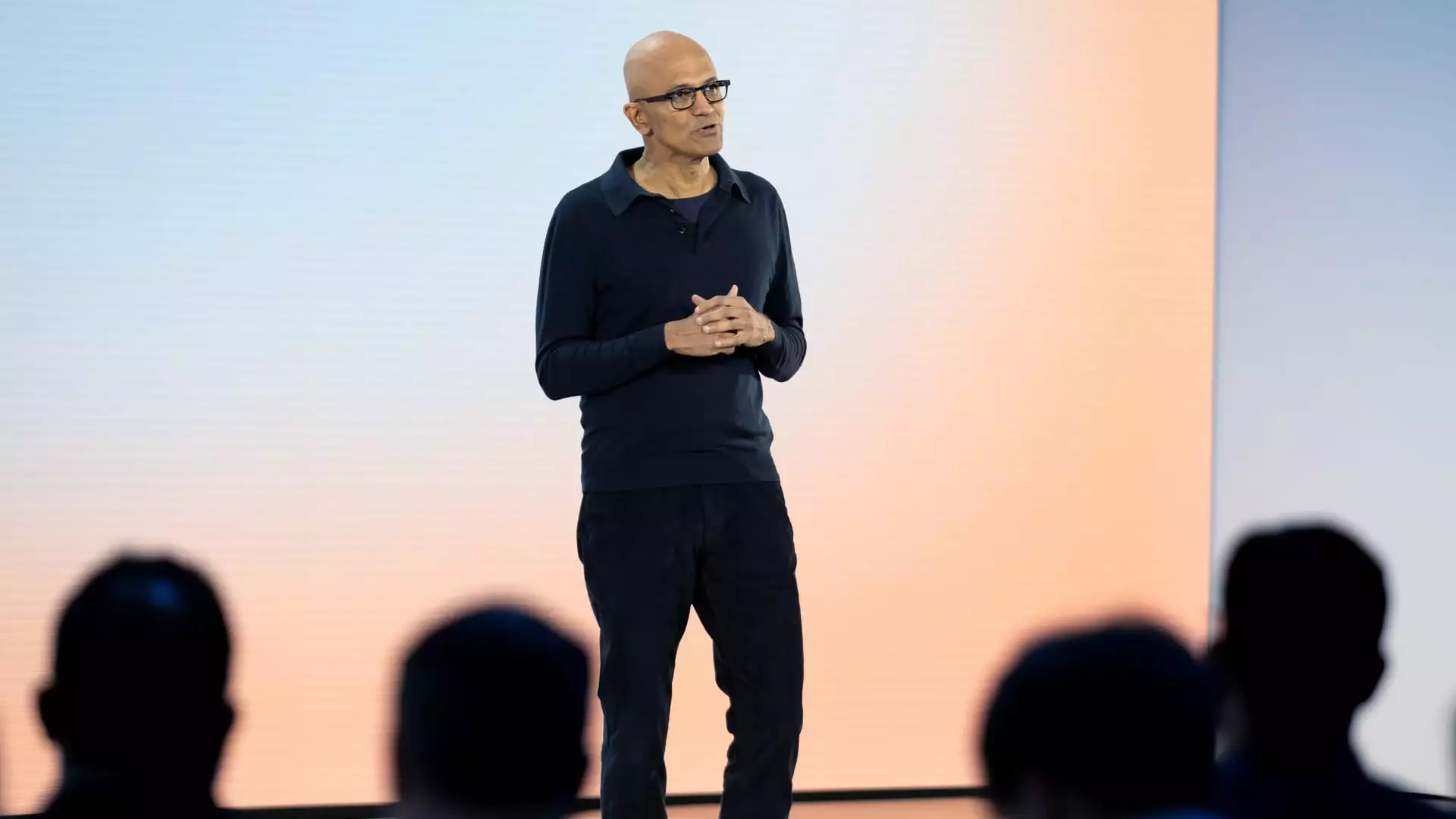In the ever-evolving landscape of corporate leadership, CEO compensation remains a contentious topic, particularly when tied to significant contextual events like security breaches. Recently, Microsoft CEO Satya Nadella’s financial package for the 2024 fiscal year spotlighted the intersection of executive pay, corporate accountability, and growing cybersecurity concerns. The reported increase in his compensation to $79.1 million, a sharp rise from $48.5 million, raises questions about the implications of such adjustments and what they signify in an era where cybersecurity is paramount.
Nadella’s pay hike of over $30 million is tempered by an interesting twist: the effect of cybersecurity challenges led to a reduction based on his request. Specifically, the cash incentive portion, initially anticipated at $10.66 million, was lowered to $5.2 million, reflecting his acute awareness of the security vulnerabilities that hit the company. Following a report from the U.S. Department of Homeland Security detailing breaches allegedly linked to foreign state actors, it appears that Nadella took a proactive stance by willingly adjusting his compensation in light of these issues. This decision underscores a broader recognition of personal accountability in leadership roles, particularly in a world where cyber threats loom large.
Traditionally, the bulk of executive compensation, particularly for tech leaders, comes in the form of stock options. This model is designed to align the interests of the executives with those of shareholders, fostering long-term growth. In Nadella’s case, Microsoft’s board acknowledged the need to realign performance metrics in light of cybersecurity priorities. It’s indicative of a critical shift: gauging a CEO’s performance should extend beyond financial results to include the security culture of the organization. This change reflects a growing acknowledgment that a healthy revenue stream can be undermined by failing to address fundamental security gaps.
Moreover, the proactive measures Microsoft pledged to undertake—institutionalizing cybersecurity within employee performance evaluations—signal a cultural transformation. Nadella’s emphasis on prioritizing security mirrors a larger trend in corporate governance, where organizations are increasingly held accountable not only for financial performance but also for their robustness against external threats. The board’s recognition of Nadella’s commitment to adapting to these lessons illustrates a maturity in corporate governance, expanding the lens through which leadership is evaluated.
Ultimately, Satya Nadella’s adjusted compensation package serves as a case study in evolving corporate ethics and accountability. As the digital landscape becomes increasingly fraught with challenges, both financial and security-minded decision-making will demand a nuanced understanding in executive leadership. By choosing to reduce his cash incentive in light of cybersecurity failures, Nadella is setting a precedent that may inspire other executives to be equally accountable, thereby fostering a more security-conscious corporate ethos in the years to come. In a world where breaches increasingly threaten consumer trust and organizational integrity, such leadership actions may prove vital for sustaining not just individual companies, but the tech industry as a whole.


Leave a Reply